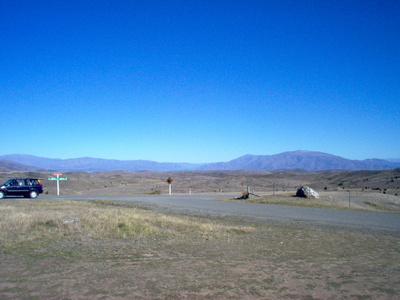James McKenzie
(c.1820–?)
Sheep drover.
James McKenzie, a Scot, who was imprisoned on a charge of stealing 1,000 sheep from the Levels Station, South Canterbury, in 1855, has become such a legendary figure that it is now almost impossible to disentangle fact from fiction. Writers have so exercised their imagination in embellishing and embroidering the few known facts about the man and his exploits that both have assumed an importance out of all proportion to their significance. McKenzie was a native of Invernessshire who emigrated to Australia about 1849, earned money transporting supplies to gold diggers; he then came to New Zealand with the object of taking up land. Disembarking at Nelson, McKenzie worked his way south to Mataura, Southland, where he purchased two working bullocks and equipment, and sought employment. He was then about 34 or 35 years old, but the date and place of his birth, and his parentage, have never been established. Apparently McKenzie made journeys north to “obtain” stock. In March 1855 a mob of about 1,000 sheep was found to be missing from Levels Station, South Canterbury. The sheep were tracked westward through the low passes to the plains beyond (now the Mackenzie Country), and on 4 March McKenzie was overpowered by the overseer from Levels, J. H. C. Sidebottom, and two young Maoris. But McKenzie broke away in the darkness and reached Lyttelton, where he was arrested and charged with the theft of the sheep. On 12 April he was sentenced to five years' imprisonment, but he was unconditionally pardoned on 11 January 1856 after spending only nine months in prison. During that time he twice escaped – on 10 May and 19 June, but on each occasion he was quickly recaptured. An attempt to escape on 1 September failed.
The only documentary information about McKenzie consists of his signed petition to the Governor, Colonel Thomas Gore Browne, in which he relates brief details of his life, his engagement by an unknown man to drive sheep from Canterbury to Otago, and other events leading up to his arrest; a long covering letter by H. J. Tancred, sheriff of Lyttelton, who was convinced that there had been a miscarriage of justice and that others were involved in the theft; a minute by J. E. FitzGerald, Superintendent of Canterbury, supporting Tancred's letter; and McKenzie's pardon. A letter written by Sidebottom containing details of his discovery of McKenzie with the sheep has been lost, but it was printed in the Lyttelton Times of 17 March 1855. It was not until 45 years later, during the Canterbury Jubilee, when Edward W. Seager, the police sergeant who arrested McKenzie in Lyttelton, recalled the affair through the fog of years, that the legend arose. Many of the legendary tales about McKenzie concern his dog, but the only reference to this now fabulous animal appears in Sidebottom's letter to the Rhodes Brothers. The MacKenzie Country, though of different spelling, is named after McKenzie, though he was not the discoverer of that region, as reputed. McKenzie was a nervous, excitable type, and close confinement undermined his health. Nothing is known of the man after he paid his passage and sailed for Australia from Lyttelton in January 1856.
by Oliver Arthur Gillespie, M.B.E., M.M. (1895–1960), Author.
- Mackenzie of the Mackenzie Country, Beattie, H. (1946)
- Old Christchurch in Picture and Story, Andersen, J. C. (1949)
- South Canterbury, Gillespie, O. A. (1958).

The Mackenzie Country looking south from the Mount Cook Salmon farm road
Reviews / Comments for James McKenzie
No reviews have been written write a review now.

